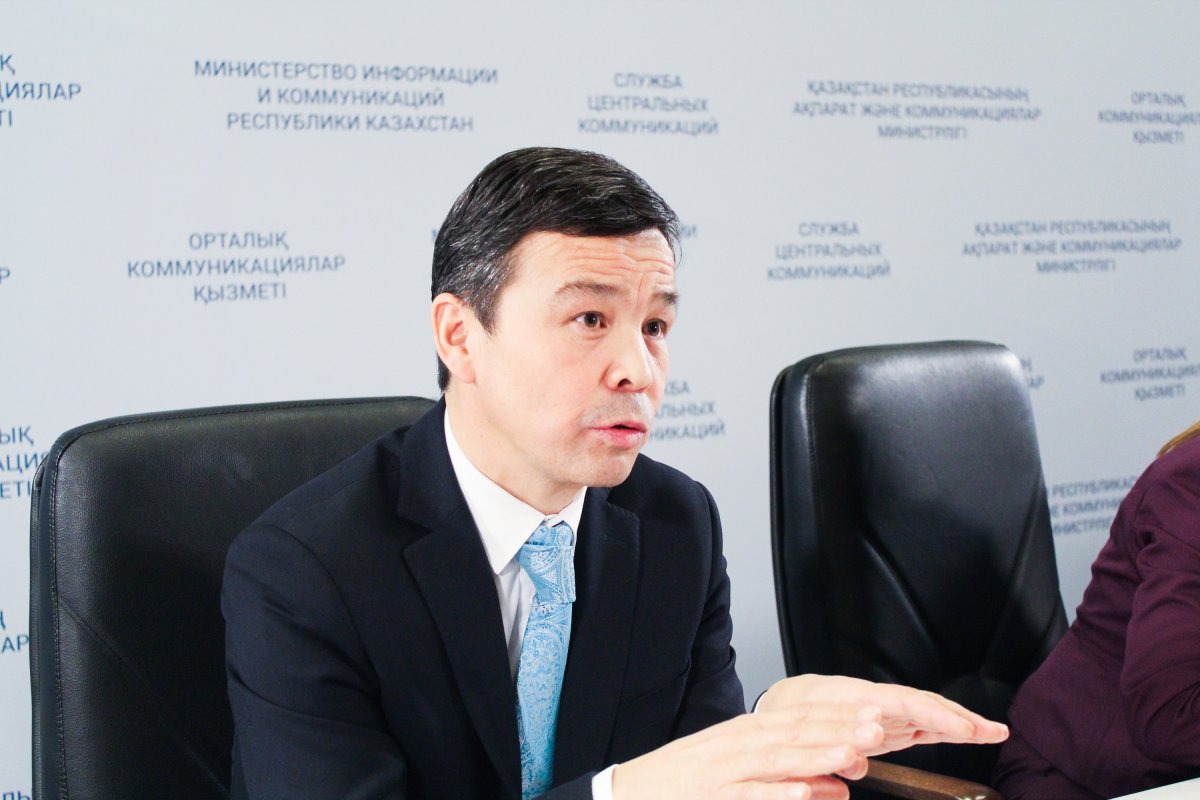Currently, there is a seasonal increase in the incidence of meningitis, in connection with which the Ministry of Health of the Republic of Kazakhstan asks parents to pay special attention to the state of children's health.
Representatives of the Ministry of Health of the Republic of Kazakhstan informed about this at a press conference at the CCS.
The head of the Public Health Department of Astana, Baygabulov Sadvakas, emphasized that in general, the situation in Astana with respect to serous meningitis is stable.
“Last week we had 8 cases. Today, three children were discharged from the hospital. Serous meningitis is not so dangerous and differs from meningococcal and purulent meningitis in a benign course. Initially, the patient comes with symptoms such as headache, nausea, vomiting, fever, lethargy. On the second or third day, headache and nausea disappear. On the fifth day, the temperature stabilizes. In the hospital for today there are five children.
The course of the disease is favorable and, as a rule, the child is discharged on the 10-12th day, ”he said.
The Deputy Chairperson of the Public Health Committee of the Ministry of Health of the Republic of Kazakhstan, Akhmetniyazova Laura, added that on Saturday 2 more children were hospitalized with serous meningitis. To date, 7 children with a similar diagnosis are in the hospital.
“Since the beginning of 2018, the diagnosis of“ meningococcal infection ”has been confirmed in 85, including 51 cases in the outbreak in Almaty and Almaty region. After anti-epidemic measures, the incidence of meningococcal infection in the country has been stabilized. Since June 30, 2018, sporadic cases of meningococcal disease have been reported in the republic. Thus, the situation in the republic is stable, ”she said.
The speaker noted that the incidence rate of meningococcal infection in Kazakhstan is 0.5 per 100 thousand of the population, which is 4 times lower than the threshold level (the average long-term incidence rate is 2.1).
“With suspicion of meningococcal infection in the hospital there is one patient resident of Akmola region. Laboratory studies in the work. The patient's condition is stable, there is a positive trend, "- she said.
According to Laura Akhmetiniyazovoy, up to 700 cases of serous meningitis are registered in the republic annually, in 2017, 701 were registered. During 9 months of this year, 575 cases of serous meningitis were recorded, of which 196 were in Astana. In all cases, anti-epidemic measures are carried out.
Laura Akhmetniyazova explained in detail how meningitis is different.
“Meningitis is an inflammation of the membranes of the brain and spinal cord. Meningitis due to occurrence is divided into three main groups. This is meningococcal, purulent and serous meningitis.
Infectious danger to others are patients with meningococcal meningitis. Since this disease occurs in more severe forms, and also the patient intensively releases the pathogen into the external environment when coughing, sneezing.
Serous meningitis of viral origin is caused by enteroviruses, as well as some other types of viruses. Viral serous meningitis is different from meningococcal and purulent meningitis in a benign course. They very rarely give complications.
The source of the infection is a sick person and a “healthy” virus carrier. The virus is transmitted through water, vegetables, fruits, food, dirty hands. It can be transmitted by airborne droplets with large crowds of people. Infection often occurs when bathing in water bodies and swimming pools.
Purulent meningitis - purulent inflammation of the meninges. Purulent meningitis may develop against the background of the primary septic focus present in the body.
The spread of the pathogen is possible from an infectious focus of any localization, but most often occurs with long-term infections of the upper respiratory tract (acute and chronic purulent otitis, sinusitis - sinusitis, frontal sinusitis).
Penetration of pathogens of purulent meningitis contributes to a weakened state of the body's immune system, which can be caused by frequent acute respiratory viral infections, hypovitaminosis, endured by stress, physical overload, abrupt climate change. Patients with purulent meningitis are not dangerous to others. Since the patient in this stage of the disease does not release the pathogen into the external environment.
Meningococcal infection is an acute infectious disease caused by meningococcus and is a bacterial meningitis. The disease is transmitted by airborne droplets (when coughing, sneezing, talking).
A sudden onset is characteristic of meningococcal meningitis: a severe headache, vomiting suddenly appears, after 6-15 hours a rash, the temperature reaches 39–40 ° C, chills. Pale skin. There is general weakness, pain in the back and limbs. Patients are thirsty, appetite is reduced. It should be noted that the disease can occur in a light, and therefore very insidious form, imitating such relatively "harmless" diseases as the flu, sore throat, runny nose, tonsillitis, etc. When favorable conditions arise, such as weakening of the body's defenses caused by hypothermia, disease, overwork, meningococcus rapidly penetrates into the lining of the brain and causes inflammation.
The source of infection is sick people and “healthy carriers”, i.e. people who have no clinical manifestations, but they are carriers of meningococcus, ”she said.
The speaker stressed that the only thing that needs to be done promptly in case of suspicion of the disease is to urgently consult a doctor and not self-medicate!
Due to the fact that the disease may for some time be disguised as a common cold, a timely visit to a doctor is necessary. If meningitis is suspected, the patient is urgently hospitalized to an infectious diseases hospital.
For the prevention of meningitis, representatives of the Ministry of Health gave the following tips:
- Limit attendance without the need for crowded places, shopping and entertainment complexes, cultural events held in poorly ventilated rooms;
- Do not supercool, and dress for the weather.
- To wash hands. Thorough hand washing is very important to avoid infection. Teach your children to wash their hands often, especially before eating, after being in a public place, and also after touching animals;
- Watch your health. Maintain your immune system by resting normally, exercising regularly and adhering to a healthy diet;
- Persons who were in contact with the patient to carry out the prescription of doctors to receive antibiotics for prophylactic purposes under the supervision of health workers.












